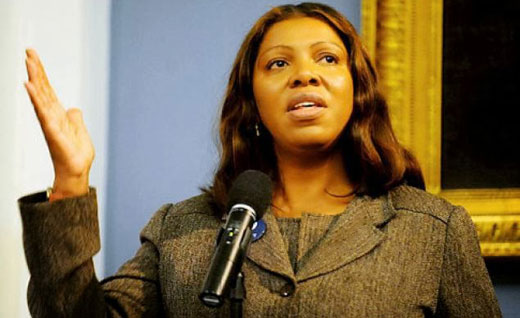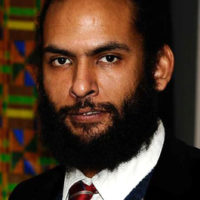
NEW YORK – The 2013 New York City elections were a thunderous mandate for progressive change in the nation’s largest city. A broad democratic front with labor, and racially and national oppressed people at the lead, has elected a new city government on the platform of reversing the 20 years of Republican rule that preceeded it.
Mayor-elect Bill de Blasio, Public Advocate-elect Letitia James, and a victorious city council progressive caucus campaigned hard, telling voters that they had the heart to fight and defeat the right-wing agenda. They received overwhelming support in response.
With the 2014 mid-term elections looming, candidates throughout the state and nation who are straddling the fence or wavering in their support of working families have been put on notice.
Since the historic election of David Dinkins to the office of mayor, the city has held five mayoral elections. In consecutive races the united front that elected the first African American executive was divided and conquered by an alliance of reactionary sections of the 1 percent. This parasitic grouping coalesced in the local Republican Party where, with fear-mongering and promises of good governance it was able to further reduce the tax burden on the super wealthy while 99 percent of New Yorkers faced austerity and privatization.
After two decades of City Hall catering to the now 70 billionaires and 365,000 millionaires that occupy its five boroughs, a new electoral majority has emerged victorious and ready to chart its own course for a new New York City.
Bill de Blasio is mayor-elect in large part because he has the heart to challenge stop and frisk and support higher taxes on the rich. His son Dante leading the way, the campaign asked New Yorkers to reject the criminalization of poverty and to address that poverty instead.
In response, a desperate Republican Party red baited de Blasio throughout the contest but the message of equality could not be stopped. De Blasio continued growing his support through election weekend despite sound trucks and front page newspaper articles calling him a socialist. Far from letting this put him on the defensive, our next mayor used each of these attacks as opportunities to clarify his commitment to social and economic justice. His popularity rose with each slander, totaling an astonishing 74 percent of the vote.
Letitia James, the councilwoman from Brooklyn, won a historic campaign for Public Advocate as the first African American woman to hold that or any citywide elected office. In the primary and runoff elections James developed a diverse coalition rooted among labor and the racially oppressed and also received strong participation from liberal-leaning white communities.
The James campaign also contributed to a ground-shaking mobilization in central Brooklyn that promises to change the terrain of struggle in the entire city. The largest concentration of people of African descent on the eastern seaboard sent machine candidates packing by voting their class interests. Brooklyn Boro President-elect Eric Adams and District Attorney-elect Ken Thompson, like Public Advocate-elect Letitia James, are consistently progressive African Americans and will be vital contributors to the reshaping of our city.
Mellissa Mark Viverito and 10 other members of the NYC council Progressive Caucus won races for City Council head to head against rightwing fronts like Good Jobs NYC and Students First, who had targeted her and other candidates favorable to the 99 percent. The two organizations were unsuccessful in defeating a single progressive candidate.
Grassroots forces like Community Voices Heard (CVH) are now moving the conversation to the post election with an eye for expanding programs like participatory budgeting. They and others have plugged into initiatives like 13 Progressive Ideas for NYC (13boldideas.org), which brings together the various organizations and institutions of the peoples movement, packaging their cutting edge solutions in 13 clearly presented proposals to rebuild our city.
Talking Transition (Talkingtransitionnyc.com) on the other hand is working to involve thousands of New Yorkers in an open conversation about the mayoral transition and future of the city in the process and connecting them with the above-mentioned groupings of labor and community.
To say that candidates who wanted to break with the right-wing agenda won convincingly would be an understatement. A better description is that they approached consensus. This is especially clear in the Black and Latino communities where the effects of landlords, developers and Wall Street have hit the hardest.
The question now is whether the progressive movement can harness this unity before it is weakened by the drag of intergovernmental processes.
What we win at the ballot box can be lost at the picket line. The struggle to realize the progressive mandate and to recalibrate city government toward progressive change began Nov 6, one day after elections.
Taxing the rich to fund pre-school and after school, outlawing racial profiling, significantly increasing the minimum wage, ensuring retroactive pay and contracts for public workers, ending infill and privatization attempts in public housing, ending the co-locations and privatization attempts in public education, preservation and construction of housing that is truly affordable and more are on the line.
Photo: Letitia James. blogspot












Comments